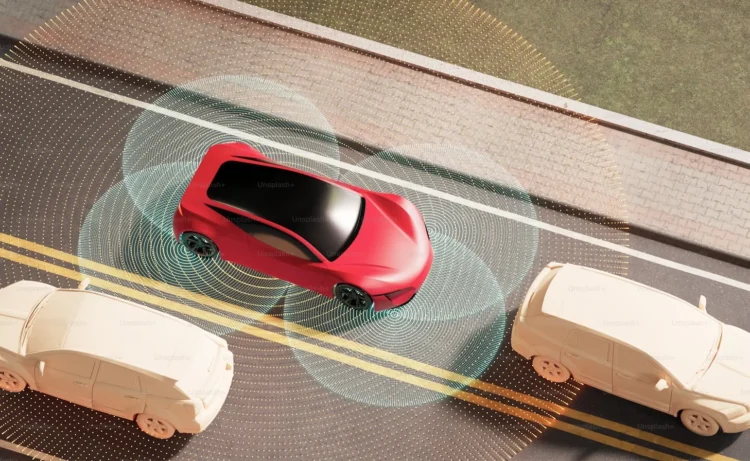Publisher: Maaal International Media Company
License: 465734
(Maaal): Global autonomous vehicle market expected to reach $121 billion by 2024
By: Mamdoh Almalki
(Maaal) monitored the most prominent moves by global companies in the autonomous vehicle race, one of the fastest-growing sectors globally. The market size is estimated at approximately $121 billion in 2024, with expectations of exceeding $750 billion by 2030, according to recent estimates from research firms such as Statista and Precedence Research. Technology companies and automakers are engaged in a frantic race to dominate this sector, which combines engineering innovation, artificial intelligence, and the future of transportation. Meanwhile, Saudi Arabia is taking strategic steps to seize the opportunity and transform into an open experimental and operational environment. American companies like Tesla, Waymo, and Zoox are leading the way, implementing actual robotaxi operations in cities like Austin and Phoenix, with advanced levels of autonomy, some models even reaching full driving without human intervention. These companies benefit from digital infrastructure, flexible regulations, and billions of dollars in investments in developing artificial intelligence systems, advanced sensors, and superior communication networks.
In contrast, China is ahead in terms of quantity, with companies like Baidu, WeRide, and AutoX deploying thousands of autonomous vehicles in major cities and conducting real-world commercial tests that go beyond the pilot phase to actual operation, placing it at the forefront of countries in terms of the number of vehicles and the scope of use.
اقرأ المزيد
Europe, meanwhile, is focusing on formulating legislative frameworks and developing road networks and smart infrastructure, with more technically conservative but rigorous regulatory experiments. Germany and France are among the leaders in licensing and regulation, despite lagging behind in commercial expansion compared to the United States and China. In this context, Riyadh witnessed the launch of the pilot phase for operating autonomous vehicles in seven strategic locations yesterday. This project, supervised by the General Transport Authority, extends over a 12-month period and aims to test the technology in a realistic environment and evaluate its operational efficiency. Thirteen electric charging stations were also established for these vehicles to support operational readiness, as part of a national plan targeting 5,000 fast charging stations by 2030.
This project represents an advanced step toward developing a smart and sustainable transportation system, supported by infrastructure and specialized technical partnerships, led by WeRide and Uber, in preparation for commercial operation next year.
The Kingdom also launched the “Future Mobility Sandbox,” an integrated testing area for smart vehicles, drones, and robots, reflecting a strategic direction to prepare the legislative and technical infrastructure to accommodate these technologies.
The partnership with the Chinese company WeRide is one of Saudi Arabia’s most prominent initiatives. The company has begun testing autonomous vehicles and trucks in Riyadh and Al-Ula, indicating the Kingdom’s desire to localize this technology and employ it within the goals of smart transportation and sustainability. Market estimates indicate that the cost of developing a single autonomous vehicle currently ranges between $150,000 and $250,000. However, this figure is expected to decrease with the development of manufacturing and system integration. Business models are also expected to shift from vehicle sales to service leasing or fleet operation, opening the door to new investment models, including local operators, transportation companies, and software developers.
As this sector expands, questions arise about legislation, system security, and the potential impact on the labor market, particularly in transportation-related jobs such as taxi and truck drivers. However, several studies indicate that this shift will create new jobs in data analysis, smart systems maintenance, and remote control, which requires building a qualified human resource in the coming years.
Amid this global race, Saudi Arabia emerges as a promising player in the autonomous vehicle sector, not only as a user of the technology, but also as a regional laboratory and regulatory and experimental incubator, leveraging its geographic location, economic vision, and openness to international partnerships, strengthening its presence on the map of smart transportation innovation.








